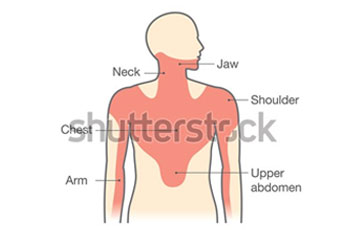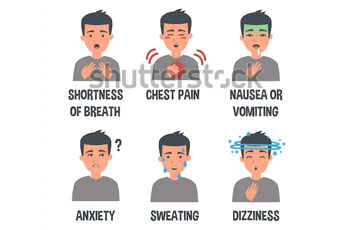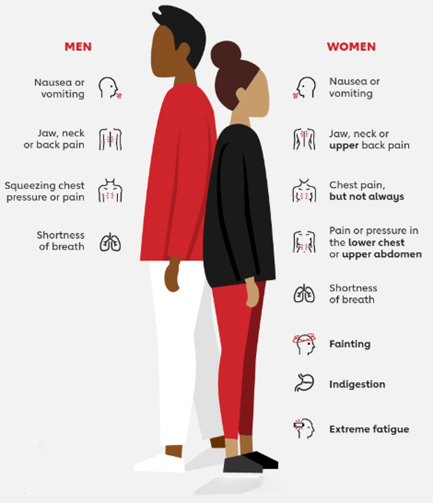Some common symptoms of angina or chest pain

- Feeling heaviness in heart.
- Feeling more pressure
- Feeling chest pain.
- Numbness of body.
Apart from the chest, its symptoms are also felt on the following organs

- On the left shoulder.
- In the hands.
- On the neck.
- In the back.
- In the jaw.
Other symptoms associated with coronary artery disease include

- Trouble breathing.
- Abnormal heartbeat.
- Fast heartbeat.
- Weakness or dizziness.
- Nausea.
- Sweating profusely.

When should I contact the doctor?
If you suspect a heart attack, call your local emergency number immediately. If you cannot access emergency medical services, have someone take you to the nearest hospital. Move the body as much as possible. Contact a doctor if you are at risk of coronary artery disease and are suffering from high blood pressure, high cholesterol, diabetes, heart problems in obesity, or obesity. Doctors will understand the situation and do some tests and will also look at the symptoms to understand how much the artery has shrunk.
What are the reasons for heart attack?
heart attack occurs for the following reasons:
- Smoking
- High blood pressure
- High cholesterol
- Diabetes
- Changing lifestyle

IMPORTANT SAFETY INFORMATION ABOUT XYGREL (ticagrelor) 90-MG TABLETS
- Do not stop taking XYGREL without talking to the doctor who prescribes it for you
- People who are treated with a stent, and stop taking XYGREL too soon, have a higher risk of getting a blood clot in the stent, having a heart attack, or dying
- If you stop XYGREL because of bleeding, or for other reasons, your risk of a heart attack or stroke may increase
- Tell all your doctors and dentists that you are taking XYGREL
- To decrease your risk of bleeding, your doctor may instruct you to stop taking XYGREL 5 days before you have surgery
- Your doctor should tell you when to start taking XYGREL again, as soon as possible after surgery